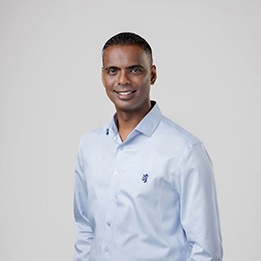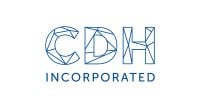

Group head of legal (and procurement) | EOH Holdings



Damian Naicken
Group head of legal (and procurement) | EOH Holdings
Team size: 11
What are the most significant cases and transactions that your legal team has recently been involved in?
Over the past year, my legal team at EOH Holdings, a prominent ICT service provider in Africa, has been deeply involved in a series of challenging and significant cases, particularly focusing on forensic investigations and related legal actions. Our organisation is best known for its fight against corruption and accolades received from Chief Justice Zondo pursuant to the Zondo Commission on State Capture. One of our main roles was to help finalise extensive forensic investigations, which were critical in addressing and resolving legacy issues of malfeasance within the organisation. This complex task was not only about uncovering past wrongdoings but also involved substantial litigation and prosecution efforts as part of the company’s comprehensive organisational ‘clean-up.’
Our involvement in these forensic investigations was multi-faceted. It required us to engage rigorously with various regulatory bodies and investigative agencies, including the JSE, SIU, DPCI, and the Competition Commission. The objective was to thoroughly scrutinise and identify potentially suspicious activities and engagements. Once identified, our team played a crucial role in the processes to report, regularise, and unwind these transactions, ensuring compliance with legal and regulatory standards.
In addition to managing the legal intricacies of the forensic investigations, our responsibilities extended to establishing an efficient legal framework for the numerous businesses within the EOH group. This framework was designed to support the group across all areas of business while maintaining clear and accountable reporting lines to the executive committee and board structures. The success of these initiatives was a testament to our team’s expertise in navigating complex legal landscapes, ensuring not just legal compliance but also contributing to the overall strategic direction and ethical restructuring of the organisation.
These efforts at EOH Holdings reflect our team’s commitment to addressing and rectifying challenging legal issues, particularly in forensic investigations and corporate governance. Our approach has always been to combine meticulous legal scrutiny with strategic business insights, ensuring that our legal interventions are not just reactive but also proactive in fostering a culture of integrity and transparency within the organisation.
How do you see the general counsel role evolving in South Africa over the next five-ten years?
In the next five to ten years, the general counsel role in South Africa is should undergo a significant transformation. Driven by advancements in AI and technology, these legal professionals will shift from traditional paper-pushing and administrative roles to become more dynamic, strategic advisors in their organisations. Their focus will increasingly be on innovative problem-solving, agility, and out-of-the-box thinking. As legal complexities and business environments evolve, general counsel will be pivotal in navigating these changes, using AI tools to enhance efficiency and effectiveness. This evolution will see them becoming key decision-makers, involved in crafting business strategies and facilitating growth. The role will become less defined by conventional boundaries, positioning general counsels as transactional architects who are integral to driving business success in a rapidly changing economic landscape.
How do you suggest in-house lawyers build strong relationships with business partners?
To build strong relationships with business partners, in-house lawyers should focus on understanding the core aspects of the business and align their legal expertise accordingly. They should position themselves as approachable and collaborative partners, actively participating in business meetings and discussions to gain deeper insights into business objectives and challenges. Effective communication is key; translating legal jargon into accessible language and providing practical, solution-oriented advice will demonstrate value. Developing a proactive approach, anticipating legal needs and potential risks, and offering strategic advice can forge trust and respect. Additionally, embracing technology and AI tools to streamline processes and provide efficient legal services will further strengthen these relationships. By being adaptable, innovative, and aligned with business goals, in-house lawyers can establish themselves as indispensable advisors, contributing significantly to the organisation’s success.